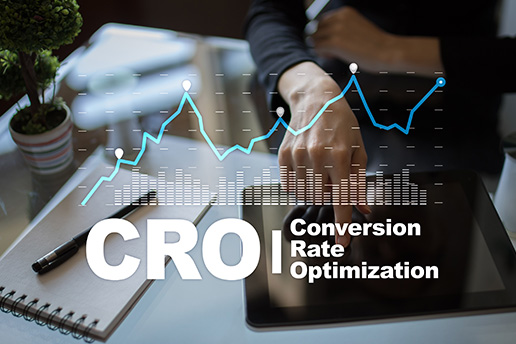Getting organic growth that increases revenue is the dream of any online business owner. You are constantly striving to get there by optimising your website using various tools and methods so that you can rank highly on search engine results pages. Moreover, you are aligning many aspects of the website with the ever-changing search engine algorithms.
While your website is receiving more organic traffic after getting the best optimization, you do not see a significant increase in sales. The reason for this could be many factors, and you may have to rethink your organic growth strategy.
Considering Factors for Your Organic Revenue Not Growing
There could be many reasons why your organic revenue may not grow, and some aspects to consider are as follows:
1. Study Google Analytics:
Google is the top search engine used widely by most people across the globe. They provide Google Analytics, a tool for measuring the performance of every website. It contains many varied metrics and data which you can use to optimise your website for ranking on the list of the most popular websites in Google. First, however, you must know what to look for and how to use the information.
You can use the Google Search Console for SEO purposes which is part of Google Analytics. It will give you data and metrics of how your site’s organic traffic is performing. As a result, you can optimize your website to have more visibility and check the status of your website’s indexing. Considering this information will help you figure out why your website is not growing organic revenue.
2. Ensure Quality Website Content:
When your organic revenue and traffic are not growing, you need to look into the basics, which would be the quality of your website content. Your website requires high-quality content as the primary key to ensuring a sound organic growth strategy. With this, your website will get listed higher on search engines and be able to have growth that is organic in nature.
Some of the considerations to have good content for your website are:
- The content should be relevant to your business.
- You must have relevant, high-quality images that optimise your website.
- The length and number of words you use in your articles must be more.
- Have many blogs specific to your subject or niche and publish them frequently.
- Use targeted meta descriptions and meta titles in your content.
- Keep all your content, articles and blogs updated for better organic growth.
3. Use of Appropriate Keywords:
Every website requires keywords that target the business objective. The keywords are vital as it helps bring organic traffic. But getting organic traffic means nothing if they are not the target audience. You will not get any sales conversions to help boost your revenue with such keywords. In order to increase your sales numbers, the right audience has to be part of the traffic, which will happen if you only use appropriate keywords.
Thus, you should thoughtfully consider whom you want to target and spend some time figuring out relevant keywords targeting your specific customers as a part of your organic growth strategy. First, keep in mind the most important words and phrases they would use to enquire about your products or services on search engines. Then, incorporate these keywords into your website for better conversions.
4. Proper Website Layout for Better Navigation:
A user’s experience when they visit your website is a significant factor in increasing organic sales. It is the difference between a visitor sticking to your website and making a purchase or moving on to your competitor’s website. Therefore, organizing your web content is crucial as a potential customer needs to be able to navigate around your website with ease.
The execution of the layout of your website is vital for organic growth. Use proper structuring and presentation of information which create a positive impression for the visitor. Your client may feel overwhelmed if your website is cluttered with too much information. You should make it easy for potential customers to navigate between pages and information. Furthermore, provide ample options for potential customers to purchase with links and buy buttons.
5. Enable Mobile Phone Access:
Most internet users access the internet through their mobile phones as it is much easier. If you have yet to create a mobile app for your business, do so soon for a faster organic growth strategy. But, along with making the app, you also need to ensure that your site gets optimized for phones. The speed at which people can access and operate your business app is critical.
In terms of layout and design, there is a big difference between websites and mobile apps. So take care to enable your mobile app with the appropriate amount of content and images. Correspondingly, avoid any unwanted animations that can hamper the loading time. Another essential point is increasing the app’s ranking on the various app stores.
6. Enhance the Look of Your Website Design:
The initial impression you make on visitors to your website is visual and contributes to organic growth. It involves using appealing colour themes that catch the attention of the customers. You have to align the colours with your business niche. Maintaining uniformity across the website pages and the mobile app designs is also necessary. The placement of logos must be similar on every page of your site.
The key to a proper website design is adequate planning of the entire design process. Then, you may have to change the website’s look if you need help growing your organic revenue.
7. Track Google Algorithm Updates:
Google algorithm update happens frequently, and you have to keep track of the changes if you want your site to rank on the Google search engine. In addition, the updates can have an impact on your business website’s SEO process. Hence, you need to incorporate these changes to optimize its position on the search engine.
Most changes in the Google algorithms are small, but at times, more significant changes can drastically alter your website’s positioning. You must understand why these updates happen and how Google will penalize deviations so that you can align your SEO process to meet them. Keeping up-to-date with organic growth strategies is easy with the many resources available online.
8. Improve Your Page Loading Speeds:
The attention span of an online visitor is very short, and if your web page has a slow loading speed, they will lose their attention quickly. As a result, you should ensure that your page loading speeds are fast to capture the visitor’s attention and reduce the bounce rate of your web pages. A slow page loading speed reduces your Google rankings significantly and is a critical factor for SEO.
Pay attention to the images on your website to increase loading speed. Improved and optimized loading speeds are essential for organic growth, so the file sizes must be correct. When you use animations on your website, ensure that you limit these plugins, as they can reduce the speed of your web pages. If needed, work on improving any coding scripts of the site and take care of its response time across all platforms.

9. Renew Losing Links:
Building credible links are vital in SEO to improve your website ranking on Google. These backlinks can help your site get much organic traffic from other websites, leading to possible sale conversions. At times these links may be lost, and it is your responsibility to renew them if this happens to boost your organic growth strategy. You can maintain such backlinks by writing and sharing blog posts and comments on other sites.
Another aspect of this link-building process is to have internal links that help the customers navigate your web pages. This assists in improving your organic revenue and helps educate visitors about your business.
10. Fix Any Errors:
Don’t let your brand image be compromised by errors or technical glitches on your website. It takes double the effort to regain client credibility once it has been lost. Furthermore, errors can ruin users’ experiences, especially if one of your features doesn’t work when they click on it, and you cannot let this happen if you want organic growth.
Conclusion
Businesses face intense competition on the internet, but if you know how to approach it, you should be fine. Your focus should be your website and its content to improve your organic revenue by gaining more traffic. Optimize your website through SEO so that your website’s SERP ranking tops the list, especially in Google. The
Google algorithm update needs to be addressed immediately to avoid falling low on the rankings. Most importantly, pay attention to your website design and loading speeds to give your customers a pleasant experience.









